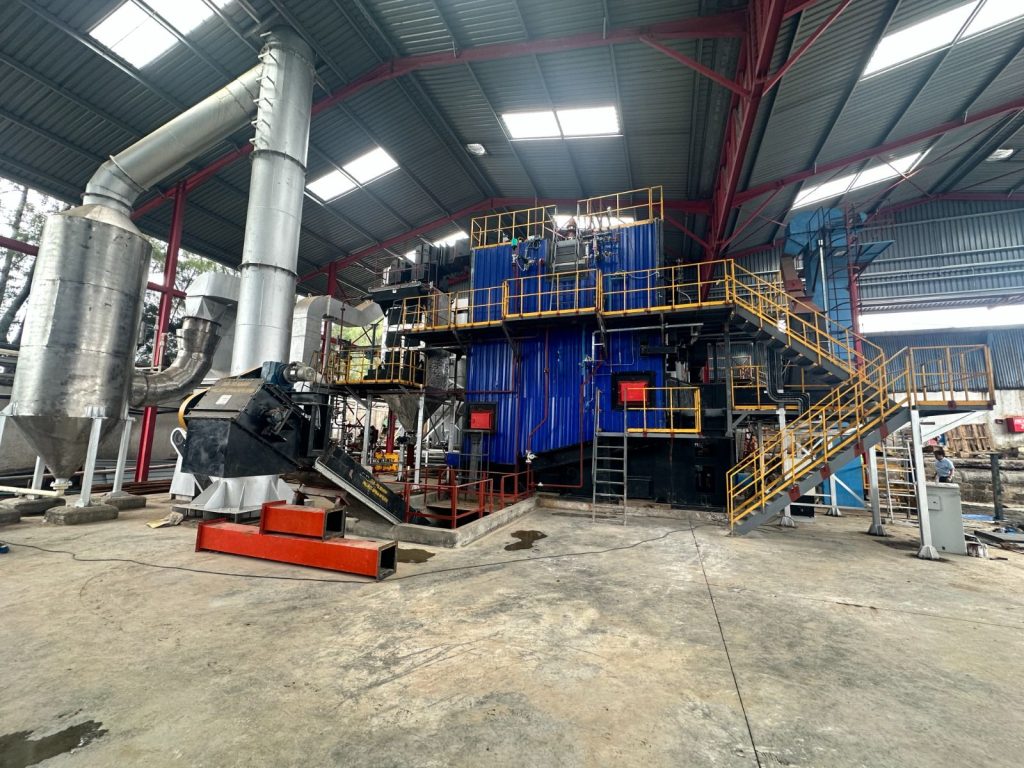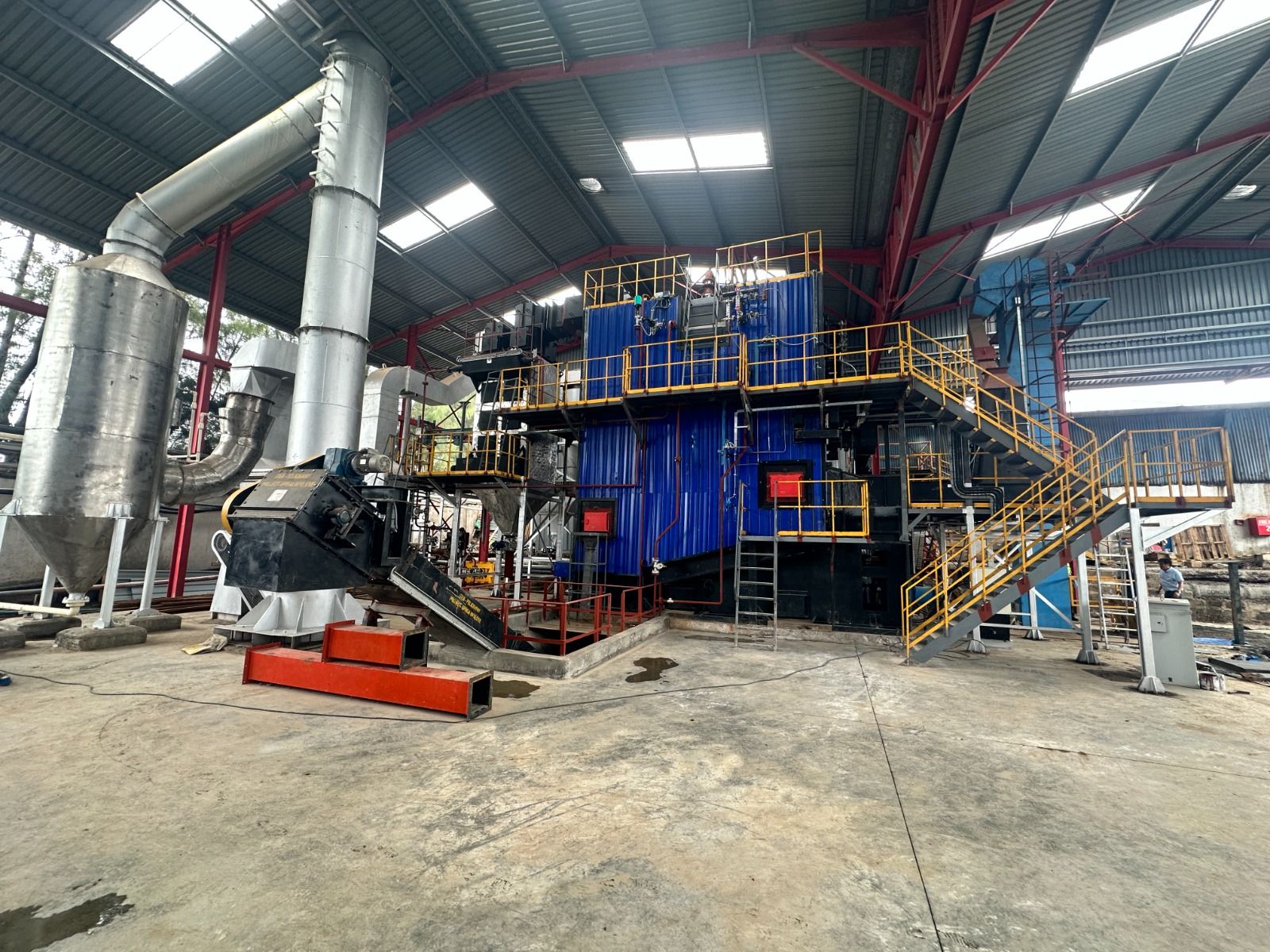Food processing facilities consume enormous quantities of steam for cooking, pasteurization, sterilization, cleaning, and countless operations where thermal energy transforms raw ingredients into safe, shelf-stable products. Boiler systems generating this steam represent the largest energy expense in most food plants, with facilities spending hundreds of thousands to millions annually on fuel while operating under mounting pressure to reduce costs and environmental impacts. Modern boilers incorporating advanced combustion technology, intelligent controls, and comprehensive heat recovery enable food processors to dramatically reduce fuel consumption while maintaining the precise temperature control and reliability that food safety demands, creating sustainable operations that strengthen bottom lines and competitive positions.

Steam’s Essential Role in Food Manufacturing
Food processing relies on steam for diverse applications each critical to product safety and quality. Cooking operations use steam for heating products to specific temperatures ensuring pathogen destruction while maintaining nutritional value and sensory characteristics. Pasteurization and sterilization processes depend on precise steam control achieving time-temperature combinations that eliminate harmful microorganisms without damaging products. CIP systems use steam-heated cleaning solutions sanitizing equipment between production runs, with steam quality directly influencing sanitation effectiveness.
Traditional boiler systems designed decades ago operate with efficiencies of sixty-five to seventy-five percent, meaning substantial fuel waste that translates to higher costs and unnecessary emissions. Modern boilers achieve efficiencies exceeding ninety percent through condensing technology and intelligent controls, capturing energy conventional systems waste while reducing carbon footprints that food brands increasingly promote as competitive differentiators in sustainability-conscious markets.
Condensing Boiler Technology
Modern boilers employ condensing technology that recovers heat from exhaust water vapor that conventional systems vent to atmosphere. By cooling exhaust below condensation temperature, these systems extract latent heat achieving efficiency improvements of fifteen to twenty percentage points. This recovered energy reduces fuel consumption proportionally, delivering immediate cost savings while cutting emissions that food companies report to investors and environmentally conscious consumers.
We design condensing systems addressing acidic condensate management and corrosion prevention while maximizing efficiency gains. At Spenomatic Kenya, our food industry experience ensures boiler specifications match facility steam demands precisely, avoiding oversizing that reduces efficiency while ensuring adequate capacity for peak production and future growth.
The Institute of Food Technologists emphasizes sustainability throughout food processing, with energy efficiency representing one of the highest-impact areas where facilities can make measurable environmental improvements while strengthening profitability through reduced operating costs.
Intelligent Control Systems
Modern boilers incorporate sophisticated controls that continuously monitor and adjust combustion parameters maintaining optimal efficiency. Oxygen trim controls analyze exhaust composition adjusting air-fuel ratios in real-time, preventing both excess air that carries heat away and insufficient air causing incomplete combustion. Variable firing rate modulation matches steam production to actual demands rather than cycling on-off, eliminating efficiency losses while reducing thermal stress extending equipment lifespans.
These intelligent systems respond instantly to load changes common in food facilities where production schedules shift between products, CIP cycles interrupt processing, and seasonal demand affects throughput. We implement controls integrating with facility management platforms providing operators comprehensive visibility while enabling automated optimization operating continuously without constant attention.
Heat Recovery Optimization
Modern boilers incorporate economizers transferring exhaust heat to feedwater, reducing fuel required to reach steam conditions. Blowdown heat recovery systems capture thermal energy from water discharged to maintain proper chemistry, flashing it to produce low-pressure steam or warming makeup water. Stack condensers recover additional heat from exhaust gases, maximizing energy extraction before gases exit stacks.
Comprehensive heat recovery can improve total system efficiency by eight to twelve percentage points beyond baseline boiler efficiency. We engineer integrated recovery systems addressing all heat loss sources, creating comprehensive solutions rather than isolated component improvements.
Multi-Boiler Configurations
Food processing facilities cannot tolerate steam interruptions that could spoil batches or compromise food safety. Modern boiler installations typically include multiple smaller units rather than single large boilers, providing redundancy where facilities maintain production even with one unit offline. Intelligent sequencing controls rotate lead boilers equalizing operating hours while optimizing which units operate based on efficiency curves and total demand.
This distributed approach also improves part-load efficiency, as multiple smaller boilers stage on-off matching loads more precisely than single large units operating at reduced firing rates where efficiency suffers. We analyze facility steam profiles developing configurations balancing capital costs, operational efficiency, and reliability requirements.
Water Treatment Integration
Food facilities cannot risk boiler failures interrupting production or compromising product safety. Proper water treatment prevents scale buildup, corrosion, and steam quality issues that reduce efficiency and shorten equipment lifespans. Modern boilers require high-quality feedwater, with comprehensive treatment systems producing water meeting exacting specifications.
Reverse osmosis, softening, and chemical treatment programs work together preventing problems before they impact operations. Continuous water chemistry monitoring enables automated chemical dosing maintaining optimal conditions constantly. We design integrated treatment considering both boiler requirements and food safety standards where steam contacts products or sanitizes equipment.
Fuel Flexibility and Sustainability
Modern boilers increasingly accommodate multiple fuel sources enabling food facilities to optimize costs while advancing sustainability objectives. Natural gas provides the cleanest fossil fuel option, but biogas from anaerobic digestion of food waste represents carbon-neutral alternatives some facilities produce on-site. Biomass boilers burning sustainably sourced materials provide renewable options particularly attractive for facilities with access to agricultural residues.
We evaluate fuel options considering availability, costs, emissions profiles, and corporate sustainability commitments, designing systems accommodating current sources while providing flexibility for future transitions as renewable options become accessible.
Emissions Monitoring and Compliance
Food companies face growing consumer pressure to demonstrate environmental responsibility. Modern boilers incorporate continuous emissions monitoring tracking nitrogen oxides, carbon monoxide, and other pollutants, ensuring compliance while providing data supporting sustainability reporting. Low-NOx burners and optimized combustion reduce pollutant formation while maintaining efficiency, enabling facilities to exceed regulatory minimums demonstrating environmental leadership.
The Sustainable Food Lab promotes sustainability best practices throughout food systems, with efficient boiler operations recognized as fundamental to responsible food manufacturing reducing environmental impacts while controlling costs.
Conclusion: Boiler Excellence for Food Safety
Modern boilers deliver transformative benefits combining energy cost reductions with enhanced reliability and environmental improvements that strengthen brand value. Technology maturity enables food facilities to operate more efficiently while meeting food safety standards and sustainability commitments defining industry leadership.
Food processing demands perfection every single day, and your boiler system can’t be the weak link. That’s our specialty at Spenomatic Kenya designing and implementing modern boiler systems that meet food-grade standards while delivering the efficiency gains you need. We’ve commissioned systems in meat processing, dairy, bakeries, and prepared foods, learning what separates success from compromise. When uptime isn’t optional and efficiency directly impacts your margins, you need a partner who’s proven themselves in environments as unforgiving as yours. Let’s discuss what modern boiler technology can deliver for your facility.
FAQs
1. Can modern boilers meet food safety requirements?
Yes, properly designed systems produce steam meeting all food safety standards, with options for pharmaceutical-grade clean steam where required for direct product contact.
2. What efficiency improvements can food facilities expect?
Modern condensing boilers with advanced controls achieve fifteen to twenty-five percent efficiency improvements over conventional systems, delivering substantial fuel cost reductions.
3. How do multiple smaller boilers compare to single large units?
Multiple units provide better reliability through redundancy, improved part-load efficiency, and operational flexibility, typically justifying slightly higher capital costs.
4. Can food facilities upgrade boilers without production interruptions?
Yes, careful planning allows new systems to be commissioned while existing boilers maintain operations, with cutover during planned maintenance periods.
5. What fuel options work best for sustainable food manufacturing?
Natural gas offers the cleanest fossil fuel option, while biogas from waste and sustainably sourced biomass provide renewable alternatives with improving economics.

